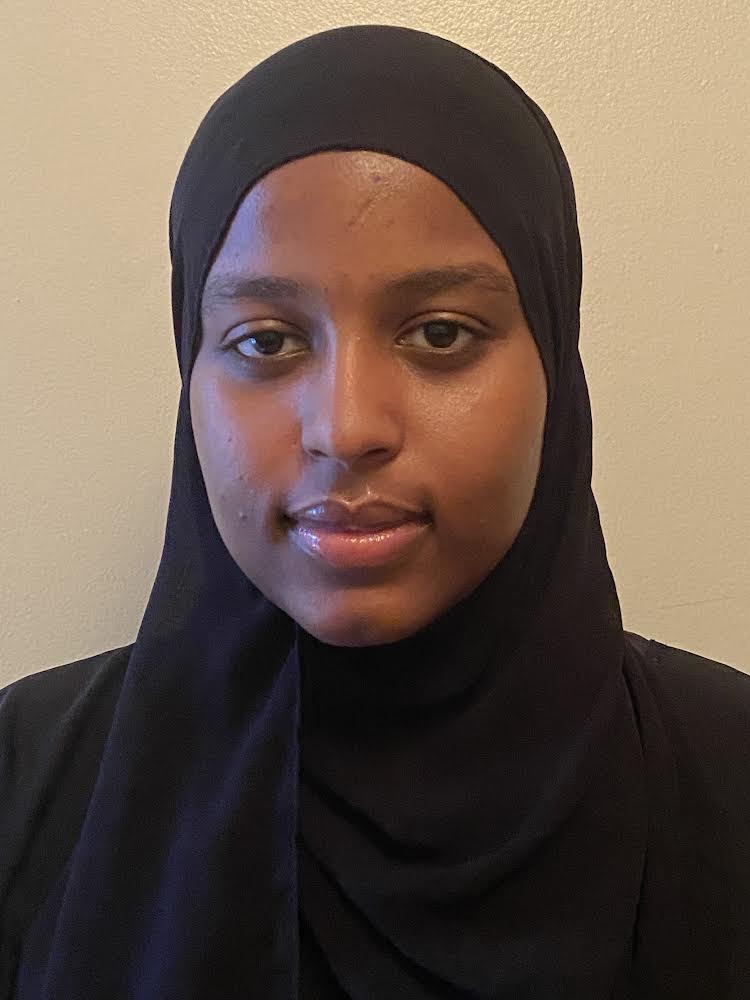Black Childhoods in Canada: First course of its kind in Canadian post-secondary

Professor Janelle Brady (left) and undergraduate Lauren Kim (right) on a field trip, exploring the history of Mary Ann Shadd Cary, the first Black woman in North America to publish and edit a newspaper.
Winter term, 2024. For many enrolled students, Black Childhoods in Canada offered new terrain — a first time formally studying Black experiences; encountering Black scholarship; or even being taught by a Black professor.
By the end of the term, students left not only with Afrocentric content, but a taste of culturally responsive, non-Eurocentric course delivery — one that honours the knowledge students bring, and that’s action-oriented with field trips, public service campaigns, music, advocacy and more.
To date, CLD 540 is a first in Canadian post-secondary. The course is an introduction to Black Canadian studies in the context of childhoods. It contains fundamental knowledge for anyone planning to work in early childhood, education, with children, or with the Black community.
With a shared vision to enhance Black studies content in early childhood studies, professor Rachel Berman invited fellow professor Janelle Brady to work on co-developing the course. With support from the Faculty of Community Services Anti-Black Racism Curriculum Development Fund, the course rolled out this past winter.
“I’m thrilled now to see the course come to life. It’s long overdue,” says Berman. “There’s a deficit assumption about Black children — that Black boys make trouble during play or that Black girls are made to seem more mature than they are. We need to counter those narratives and understand Black children’s humanity.”
CLD 540 was one of the first courses in the Faculty of Community Services offered under TMU’s Black Studies minor. It’s also open to students in early childhood studies — but there’s discussion about eventually opening it to more programs. Professors Brady and Berman, graduate assistant Georgiana Mathurin, and research assistant Nicole Agyenim-Boateng will share their learnings and student work samples at the upcoming TMU Learning & Teaching Conference.
Various course participants recently shared perspectives on the course’s impact.
“Anti-Black racism: not a checkbox of the fleeting moment”

Why is this new course urgent and important?
There was a lot of emphasis on ABR in 2020 after the killing of George Floyd. But it takes a lot of deep reflection and intentionality to build community that supports the entirety of being Black. This course doesn’t resolve everything, but it’s a start in breaking the “preschool-to-prison” pipeline for Black children.
Teaching CLD 540 made what impact on you?
It motivated me to do even more and seek more resources. There was so much informal discussion among students inside and outside of class. There’s a real hunger for spaces like this. It was inspiring to see how much students are already engaged in ABR work— and I felt I was learning just as much as they were!
“Our advocacy will never be in vain”

How did the course reignite your passion for advocacy?
Sometimes our voices may feel like a pin dropping — no one hears it. But I feel now that every effort has a role to play. The course gave me energy to continue advocating strongly for the needs and well-being of Black children. I hope courses like this will become standard because of the crucial information for pre-service educators.
What did you enjoy most about the learning experience?
The class discussions! It was a delightful surprise, comfort and inspiration to hear Black voices centered. Any forum that allows Black students to lift their voices is cause for celebration. The course provided so much space for us to exchange ideas and thoughtful dialogue. I’ve gained many new perspectives and techniques to better support students.
Energized to create positive change

You’re a media student. What did you take away from this course?
My previous learning lacked discussions on the history and realities of Black people in Canada. But this course opened my eyes to how young Black girls are portrayed in the media — and I can now take it upon myself to create more content to help change these depictions for the better.
What insight made the biggest impression?
The concept of Black “futurity”. It’s about imagining a stronger future for Black children through the ways we live day-to-day — ways that counter the stereotypes and discriminations which prevent Black children from living as freely as others. I want to implement futurity by always taking it upon myself to create safer spaces for Black children, whether it be my friends, family, or strangers.”
“The dynamic approaches enriched our learning”
How was this course different from all others?
I wasn’t used to seeing Black perspectives in my learning. But this course exceeded all my expectations! Dr. Brady was my first Black professor. She really created a space for us Black students to feel heard, seen and represented. Also, we’re so used to only test and essay formats, but Dr. Brady prioritized our understanding of the material. Her dynamic approaches encouraged creativity and brought a lot of richness to our learning.
What impact does the course have on your career goals?
As a future educator, there’s a very direct relation. Learning about the history and experiences of Black children prepared me to create more inclusive and responsive environments for all children. The course raises very important topics and empowers Black children.
CLD 540, behind the scenes

As the course's graduate assistant, how did you find the class atmosphere?
Georgiana: Seeing Black and non-Black students all making space to share and learn from each other was one of the best experiences. I’m a TMU early childhood studies MA alumna and now a policy studies PhD student. Yet, this is the first time I was in a course focusing only on Black people’s experiences — and the conversation was powerful to hear!
As a research assistant, what glimpse did you get into course design?
Nicole: Seeing all the intentional work that went into developing CLD 540 was amazing. It was unique being a child and youth care undergrad, while also helping the profs develop the new course — and even being invited as a guest lecturer! It helped me focus on making learning actionable — something that I’ll be applying in my future career and upcoming master's studies.
Curious about Black Childhoods in Canada? Check out CLD 540 in the 2024/25 course calendar.


